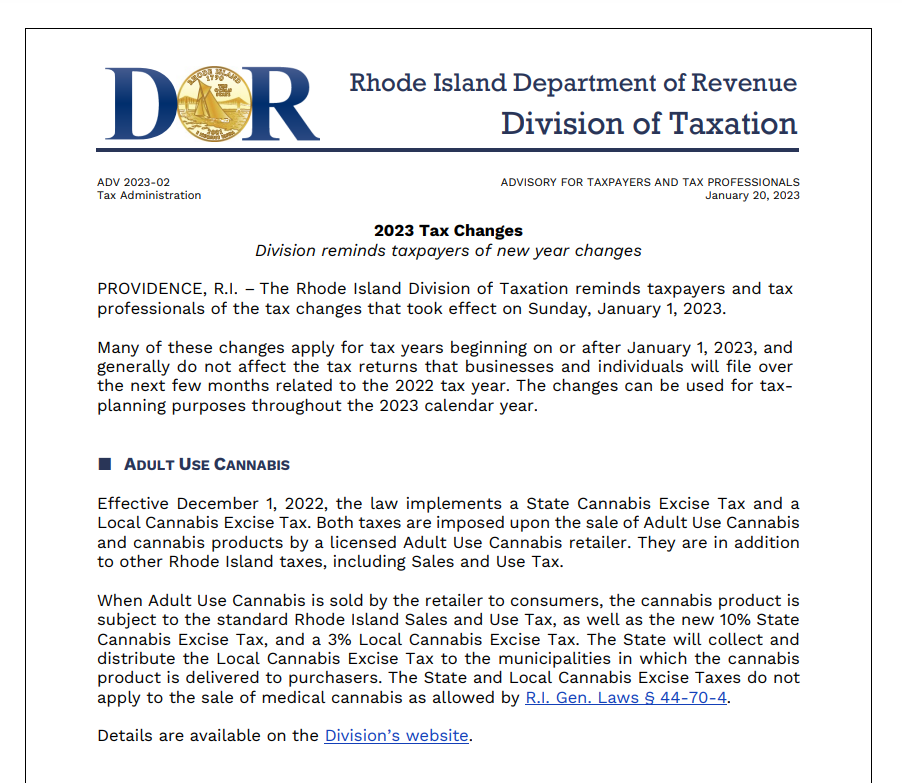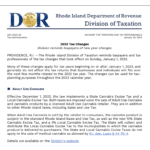Rhode Island Tax Rebate 2025 – Rhode Island offers various tax rebate programs in 2025 to encourage energy efficiency, support local businesses, and reduce the financial burden on taxpayers. This article provides an overview of the key tax rebate programs available in Rhode Island, eligibility criteria, and a step-by-step guide on how to apply for these benefits.
Rhode Island Tax Rebate Programs
Residential Renewable Energy Tax Credit
This tax credit aims to promote the use of renewable energy sources in residential properties. Eligible systems include solar panels, wind turbines, and geothermal heat pumps. Homeowners can claim up to 30% of the installation costs as a tax credit.
Business Energy Investment Tax Credit
Rhode Island offers a tax incentive for businesses that invest in renewable energy and energy-efficient systems. Eligible technologies include solar, wind, and fuel cells. This program provides a tax credit of up to 26% of the total investment cost.
Rhode Island Property Tax Relief
This program offers property tax relief for qualified homeowners and renters based on their income and property value. The maximum relief available is $300 for homeowners and $150 for renters.
Eligibility Criteria for Rhode Island Tax Rebates
1. Residential Criteria
To qualify for residential tax rebates, applicants must be Rhode Island residents, own the property, and have installed eligible energy-efficient systems. Income limits may apply for the property tax relief program.
2. Commercial Criteria
Businesses seeking tax rebates must be located in Rhode Island, invest in eligible energy-efficient technologies, and meet any additional program-specific criteria.
How to Apply for Rhode Island Tax Rebates
- Step 1: Determine Your
Eligibility Review the eligibility criteria for each program and ensure that you meet the requirements. Consult a tax professional if necessary.
- Step 2: Gather Required Documentation
Collect all necessary documentation, such as receipts for energy-efficient system installation, property tax bills, and income verification documents.
- Step 3: Complete and Submit the Application
Fill out the appropriate application forms and submit them along with the required documentation to the relevant Rhode Island tax authority.
Conclusion
Rhode Island tax rebate programs offer valuable opportunities for both residential and commercial taxpayers to save money and promote energy efficiency. By understanding the available tax rebates, their eligibility criteria, and following the outlined application process, you can take advantage of these incentives and reduce your tax burden.
Whether you are a homeowner interested in adopting renewable energy solutions or a business owner looking to invest in energy-efficient technologies, Rhode Island tax rebate programs can provide substantial financial benefits. Stay informed and up-to-date on these programs, as they may change or evolve over time, and consult with a tax professional to ensure you maximize your tax savings in 2025.
In conclusion, Rhode Island’s tax rebate programs are designed to encourage environmentally friendly practices and support local taxpayers. By familiarizing yourself with these programs, ensuring your eligibility, and following the application process, you can take advantage of the available tax incentives and contribute to a greener future for Rhode Island.
Download Rhode Island Tax Rebate 2025

